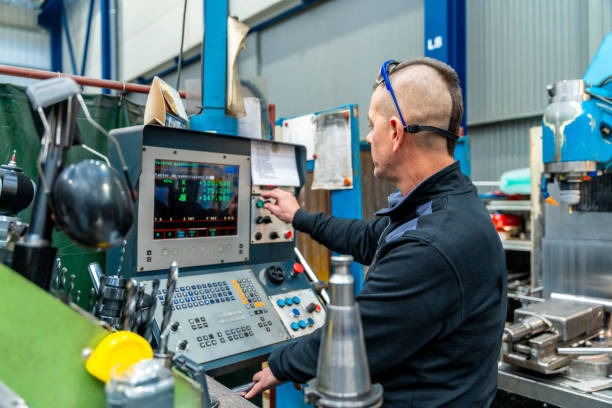Accuracy in manufacturing isn’t just a luxury; it’s a necessity in today’s competitive landscape. Industries like aerospace, automotive, and healthcare demand impeccable precision to meet safety standards and deliver superior quality. But how do manufacturers achieve such remarkable accuracy? The answer lies in leveraging advanced techniques that refine processes, reduce errors, and enhance product outcomes.
This blog post will take a closer look at some of the most sophisticated methods used to improve accuracy in manufacturing, including innovations like CNC turning services, precision machining, and real-time quality control systems. Whether you’re a manufacturer yourself or simply curious about what happens behind the scenes, read on to discover the secrets of precision excellence.
The Growing Demand for Precision
With technological advancements setting higher standards, industries are striving to minimize errors and maximize efficiency. Today’s products often include complex designs and require tight tolerances, meaning even the smallest misalignment can cause a product to fail.
Take the aerospace sector, for instance. Components like turbine blades or engine parts must be machined with micrometer-level precision to ensure they function flawlessly under extreme conditions. Similarly, in healthcare, custom prosthetics and medical devices demand perfect accuracy for patient safety and comfort.
Emerging technologies have stepped in to meet these demands, making it possible to achieve levels of precision that would have been unimaginable just a few decades ago.
Techniques for Boosting Accuracy in Manufacturing
1. Advanced Machining Processes
Modern machining methods have revolutionized how we shape and refine materials. One standout method is CNC turning services. Unlike older manual lathes, CNC (Computer Numerical Control) turning involves automated systems that produce parts with unparalleled accuracy. Here’s why it’s so effective:
- Automation Reduces Human Error: CNC machines use programmed commands to create designs, eliminating inconsistencies caused by manual intervention.
- High Repeatability: Whether you’re producing one unit or a thousand, CNC machining ensures every part adheres to precise specifications.
- Capability to Machine Complex Designs: CNC turning services make it possible to craft intricate parts with ease, delivering exceptional outcomes every time.
By combining efficiency and exactness, CNC machining plays a crucial role in maintaining product quality across industries.
2. Real-Time Quality Control Systems
One of the most significant advancements in accuracy comes from real-time inspection systems. These tools allow manufacturers to analyze parts during production rather than after completion. Key innovations include:
- 3D Scanning: Manufacturing teams use 3D scanners to compare parts against their CAD (Computer-Aided Design) models. Any deviation is instantly detected and corrected.
- Sensors and IoT: Internet of Things sensors embedded in machinery monitor temperature, vibrations, and other metrics to ensure optimal operating conditions at all times.
- Automatic Feedback Loops: Some systems utilize machine learning to adjust their processes automatically, preventing errors before they occur.
This focus on real-time adjustments has significantly reduced material waste, saving companies both time and resources.
3. Nanotechnology for Surface Precision
Nanotechnology is pushing the boundaries of what’s possible in manufacturing. By manipulating materials at the molecular level, manufacturers are able to achieve accuracy down to nanometers. This is particularly relevant for industries like semiconductors, where even the slightest imperfection can affect electronic performance.
For example, advanced coatings and nanoscale finishing techniques ensure that components remain durable and resistant to wear. Additionally, technologies like atomic layer deposition (ALD) allow for the creation of ultra-thin coatings with perfect uniformity, further enhancing products’ performance and longevity.
4. Customized Software Solutions
Modern manufacturing wouldn’t be the same without powerful software guiding each stage of production. CAD and CAM (Computer-Aided Manufacturing) software allow designers to fine-tune product details digitally before physical production begins.
- Simulated Testing: Designers can simulate stress tests, thermal changes, and other real-world conditions within the software, ensuring products will hold up under pressure.
- Digital Twins: By creating a “digital twin” (an exact digital replica of a physical object), manufacturers can diagnose potential issues and optimize performance before committing to production.
These tools not only allow for meticulous planning but also minimize costly errors during the actual manufacturing process.
Why Precision Matters to Customers
From a customer’s perspective, precision translates into trust. Whether it’s a luxury car that drives without a hitch or a medical device that performs reliably, accuracy directly impacts user experience and satisfaction.
For businesses, consistent accuracy leads to fewer defects, lower costs, and stronger relationships with clients. It also opens doors to competitive advantages, such as offering more innovative designs or meeting the strict compliance standards required for specialized industries.
Advancing Precision with the Right Tools
Investing in advanced manufacturing techniques isn’t just about staying ahead of the competition; it’s about establishing a legacy of quality and reliability. Tools like CNC turning services are transforming industries by delivering unmatched levels of accuracy and efficiency.
If you’re considering stepping up your manufacturing precision, the technologies mentioned above are a great place to start. Accurate products mean happier customers, lower production costs, and an edge in a highly competitive market.

